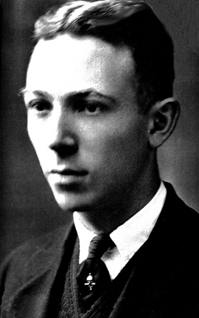Elwyn Brooks White frases e citações
Elwyn Brooks White: Frases em inglês
Salt Water Farm http://books.google.com/books?id=njRHAAAAYAAJ&q=%22A+despot+doesn't+fear+eloquent+writers+preaching+freedom+he+fears+a+drunken+poet+who+may+crack+a+joke+that+will+take+hold%22&pg=PA52#v=onepage
One Man's Meat (1942)
Paris Review interview (1969)
Paris Review interview (1969)
"Removal" (July 1938)
One Man's Meat (1942)
Harper's Magazine (October 1938); quoted in Scott Elledge, E.B. White: A Biography (New York: Norton, 1984), ch. X: Mr Tilley's Departure (p. 209)
A review of The Wave of the Future by Anne Morrow Lindbergh in Harpers Magazine (December 1940)
One Man's Meat (1942)
“One of the most time-consuming things is to have an enemy.”
"A Report in January" (30 January 1958), The Points of My Compass: Letters from the East, the West, the North, the South (1962); reprinted in Essays of E.B. White (1977)
“A good farmer is nothing more nor less than a handy man with a sense of humus.”
"The Practical Farmer" http://books.google.com/books?id=njRHAAAAYAAJ&q=%22A+good+farmer+is+nothing+more+nor+less+than+a+handy+man+with+a+sense+of+humus%22&pg=PA218#v=onepage ( October 1940 http://books.google.com/books?id=SvAvAAAAMAAJ&q=%22A+good+farmer+is+nothing+more+nor+less+than+a+handy+man+with+a+sense+of%22&pg=PA555#v=onepage)
One Man's Meat (1942)
"Quo Vadimus?" http://books.google.com/books?id=vvEvAAAAMAAJ&q=%22Did+it+ever+occur+to+you+that+there's+no+limit+to+how+complicated+things+can+get+on+account+of+one+thing+always+leading+to+another%22&pg=PA34#v=onepage, The Adelphi (January 1930)
Letter to Shirley Wiley (30 March 1954), in The Letters of E. B. White (1989), p. 391
Paris Review interview (1969)
Letter to the New York Herald Tribune (29 November 1947)
Foreword to Letters of E.B. White, edited Dorothy Lobrano Guth (1976)
"Removal" (July 1938)
One Man's Meat (1942)
Quoted in profile by Israel Shenker, "E. B. White: Notes and Comment by Author" http://www.nytimes.com/books/97/08/03/lifetimes/white-notes.html, The New York Times (11 July 1969)
"Coon Tree," The New Yorker (14 June 1956), The Points of My Compass: Letters from the East, the West, the North, the South (1962); reprinted in Essays of E.B. White (1977)
"How to Tell a Major Poet from a Minor Poet" in The New Yorker (1938); reprinted in Quo Vadimus: Or, the Case for the Bicycle (1939)
